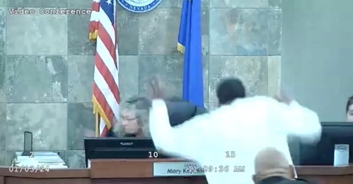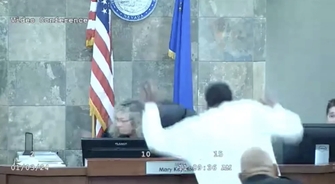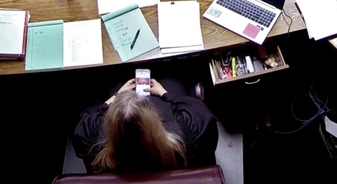In 2016, the case of Brock Turner gained worldwide recognition after the teen was handed a shockingly short prison sentence for sexually assaulting an unconscious woman. Turner, who was 19 at the time of his arrest, was found guilty on two counts of "sexual penetration" and one count of "assault with intent to commit rape" - with all three charges amounting to a potential sentence of 14 years behind bars.
Prosecutors in the case were lenient towards the defendant and recommended just six years in prison for Turner. Judge Aaron Persky, however, was even more easy-going, and handed the man just six months for the felonies.
Turner only ended up serving three months behind bars for the horrific assault. He was also given three years of probation and was ordered to register as a sex offender for the rest of his life.
In the wake of this, Judge Persky, who served at the Santa Clara County Superior Court, faced extensive criticism and now has been removed from office.
Persky was removed after 59 per cent of voters opted to recall him, making him the first judge to have been removed from his post in such a way since 1932.
"The broader message of this victory is that violence against women is now a voting issue," said Michele Dauber, the women's rights activist who launched the recall effort. "This is a historical moment in time. Women are standing up for their rights, and there is a national reckoning."
Indeed, during the trial, the judge was heavily criticised for engaging in victim-blaming. This became painfully evident when the victim - identified only as Emily Doe - read aloud this statement at Turner's sentencing:
"You took away my worth, my privacy, my energy, my time, my safety, my intimacy, my confidence, my own voice, until today. In newspapers, my name was ‘unconscious intoxicated woman’, 10 syllables, and nothing more than that. For a while, I believed that that was all I was. I had to force myself to relearn my real name, my identity. To relearn that this is not all that I am."
Shortly after Persky announced Turner's sentence, Dauber said that the light punishment told survivors of sexual assault: "‘You’re on your own. Don’t bother to call police or report.’ And the message to potential perpetrators is: ‘You don’t have to take this stuff seriously. Don’t worry, we have your back.'"
The case was also seen as an extreme example of white male privilege, as Persky said in court that a "prison sentence would have a severe impact on [Turner]," as the man was a promising Stanford University swimmer at the time of his prosecution.
Meanwhile, men of colour were being sentenced to far longer sentences for the same crime and, in some cases, years-long sentences for non-violent misdemeanours.
Persky himself has always maintained that he made the right decision in the case, and was shocked by the public outrage that came as a result.
"I expected some negative reaction," he said. "But not this."
He continued: "The problem with this recall is it will pressure judges to follow the rule of public opinion as opposed to the rule of law."
What's more, when Persky was asked by CBS News whether the recent #MeToo movement and wider understanding of the struggles faced by sexual assault survivors would have changed the severity of his decision in the People vs Turner case, the judge said: "Generally, the answer is absolutely not".
While Turner may be walking free, though, the recall of Judge Persky sends an important message to the American people: sexual assault should not warrant a light sentence, and those who continue to prop up rape culture will eventually be removed from power.





